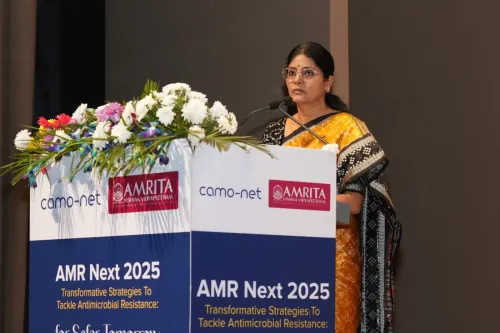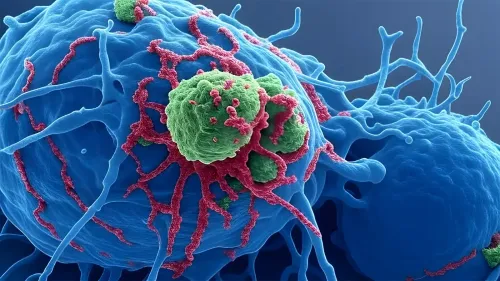Did India Record Over 15 Lakh Cancer Cases in 2024?

Synopsis
Key Takeaways
- Over 15 lakh cancer cases reported in 2024.
- 8.2 lakh deaths estimated in 2023.
- Increased life expectancy and lifestyle factors contribute to rising cases.
- The government initiated the NP-NCD program to combat NCDs.
- Focus on health promotion and early diagnosis is crucial.
New Delhi, Aug 8 (NationPress) In 2024, India experienced a significant increase in cancer diagnoses, with more than 15 lakh individuals being identified with this grave illness, noted Prataprao Jadhav, Union Minister of State for Health and Family Welfare, on Friday.
In his written response to a question in Lok Sabha, Jadhav elaborated on the alarming rise in cancer cases across the nation.
According to the Indian Council of Medical Research (ICMR), referencing the National Cancer Registry Programme (ICMR-NCRP) Data, the projected number of cancer cases for 2024 stands at 15,33,055.
The trend of increasing cancer incidence is evident, escalating from 13.5 lakh in 2019 to 15.3 lakh in 2024. The number of diagnoses jumped from 13.9 lakh in 2020 to 14.2 lakh in 2021, 14.6 lakh in 2022, and 14.9 lakh in 2023, as reported by the Minister.
Furthermore, Jadhav pointed out that approximately 8.2 lakh individuals are estimated to have succumbed to cancer in 2023, marking the highest death toll since 2019.
In 2019, 7.5 lakh patients lost their battle against the disease, with the numbers being 7.7 lakh, 7.8 lakh, and exceeding 8 lakh in the subsequent years of 2020, 2021, and 2022 respectively.
“The rise in the estimated cancer cases can be attributed to improved access to advanced diagnostic technologies, increased life expectancy, a growing elderly population, heightened health awareness, and better health-seeking behaviors,” Jadhav explained.
Additionally, he noted a substantial rise in traditional risk factors associated with Non-Communicable Diseases (NCDs), including cancer, such as tobacco and alcohol use, sedentary lifestyles, poor dietary habits, and high consumption of salt, sugar, and saturated fats.
To address this growing concern, the government has initiated the National Programme for Non-Communicable Diseases (NP-NCD).
The primary goal of this program is to prevent and manage common NCD risk factors through an integrated approach, aiming to reduce premature morbidity and mortality from cancer and other NCDs.
“This initiative emphasizes health promotion, early detection, effective management, and case referral while strengthening infrastructure and capacity building. Capacity building is implemented at various levels of health care for prevention, early detection, affordable treatment, rehabilitation, awareness, and behavior modification communication,” Jadhav stated.









